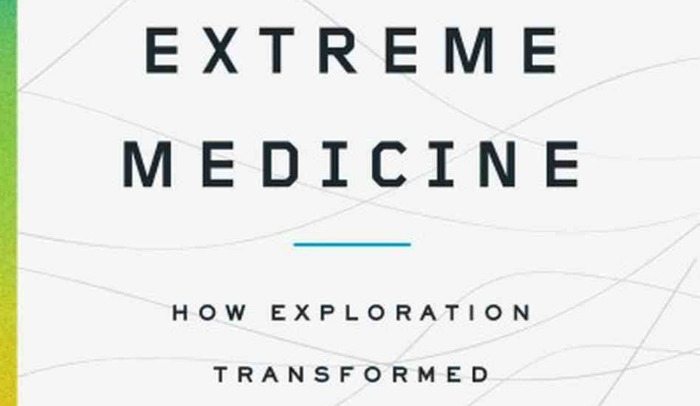
Looking for a great read in 2014? If you’re interested in staying up to date on the latest health trends, you’ve come to the right place. Professionals – like physicians or health care administrators – and individuals with a general interest in wellness alike won’t want to miss these titles. From the inner workings of your mind to the harsh elements of the natural world, these books view medicine through a diverse series of lenses – and ask their readers to do the same.
1. Extreme Medicine: How Exploration Transformed Medicine in the Twentieth Century
by Kevin Fong, MD (February 6, 2014)
Author Kevin Fong uses his background as a physician and years with NASA to explore the extremes of medicine and human endurance. Blending fascinating case studies with personal stories and relevant medical details, Extreme Medicine shares the stories behind some of the greatest medical discoveries of all time. Dr. Fong is co-director of the Centre for Altitude, Space and Extreme Environment Medicine, as well as a fellow of the National Endowment for Science, Technology and the Arts and an honorary lecturer at University College London.
2. The Depths: The Evolutionary Origins of the Depression Epidemic
by Jonathan Rottenberg (February 11, 2014)
If depression is caused by a chemical imbalance, then why haven’t we fixed it? Psychologist Jonathan Rottenberg says he has the answer. In this challenge to traditional models of depression, Rottenberg draws on his own experiences with depression as a young adult, as well as new findings on the science of mood to argue that modern depression is an evolutionary product of the past. Jonathan Rottenberg is an associate professor of psychology at the University of South Florida, where he is the director of the Mood and Emotion Laboratory.
3. The Future of the Mind: The Scientific Quest to Understand, Enhance and Empower the Mind
by Michio Kaku (February 25, 2014)
Want to improve your intelligence? Store your memories in a digital format? Videotape your dreams? Theoretical physicist Michio Kaku predicts that all of these things are possible. In this book, Kaku explores research developments around the globe that merge neuroscience and physics to develop technologies that will vastly change our lives in coming years. Michio Kaku is a professor of physics at the City University of New York, cofounder of String Field Theory and the author of several acclaimed science books, including Physics of the Impossible and Physics of the Future.
4. Caffeinated: How Our Daily Habit Helps, Hurts and Hooks Us
by Murray Carpenter (March 13, 2014)
Think that boost from your morning Joe is a good thing? The answer may be more complex than we think. In this eye-opening analysis of America’s favorite drug, Carpenter uses his research and expertise on the topic to reveal little-known facts about this largely unregulated addictive substance. Carpenter, who has reported caffeine-related stories for a number of major publications, holds a degree in psychology from the University of Colorado and an MS in Environmental Studies from the University of Montana.
5. Bad Pharma: How Drug Companies Mislead Doctors and Harm Patients
by Ben Goldacre (April 1, 2014)
A healthy dose of skepticism may be the best medicine when it comes to the pharmaceutical industry. In this disturbing analysis, Ben Goldacre uses his knowledge as a physician and journalist to delve into the types of data manipulation and research misconduct that dominate the world of Big Pharma. Goldacre is a doctor, writer and author of Bad Science, an international bestseller.
6. Missing Microbes: How the Overuse of Antibiotics is Fueling our Modern Plagues
by Martin J. Blaser (April 8, 2014)
Who would have thought that killing bacteria could do more harm than good? Dr. Martin Blaser, a world-renowned scientist and physician, discusses the harmful effects of destroying vital bacteria through the overuse of broad-spectrum antibiotics — a problem reaching epidemic proportions in the United States. Blaser is well versed in the ABCs of the microbial world: he has studied the role of bacteria in human disease for over 30 years and is the director of the Human Microbiome Program at NYU.
What book is on your wish list?
Featured image via NPR









![Daily Bite [Make]: Philly Cheesesteak Stuffed Bell Peppers](https://dashofwellness.com/wp-content/uploads/2013/01/Philly-Cheesesteak-Stuffed-Pepper-Daily-Bite-1-100x70.png)

Death by Food Pyramid is quite possible one of the BEST and most highly recommended of books I have ever read! It really lays everything out in the easiest way possible, but also explains lots of very important misconceptions in this world! HIGHLY recommended!!!!
Great to know. Thanks, GiGi!